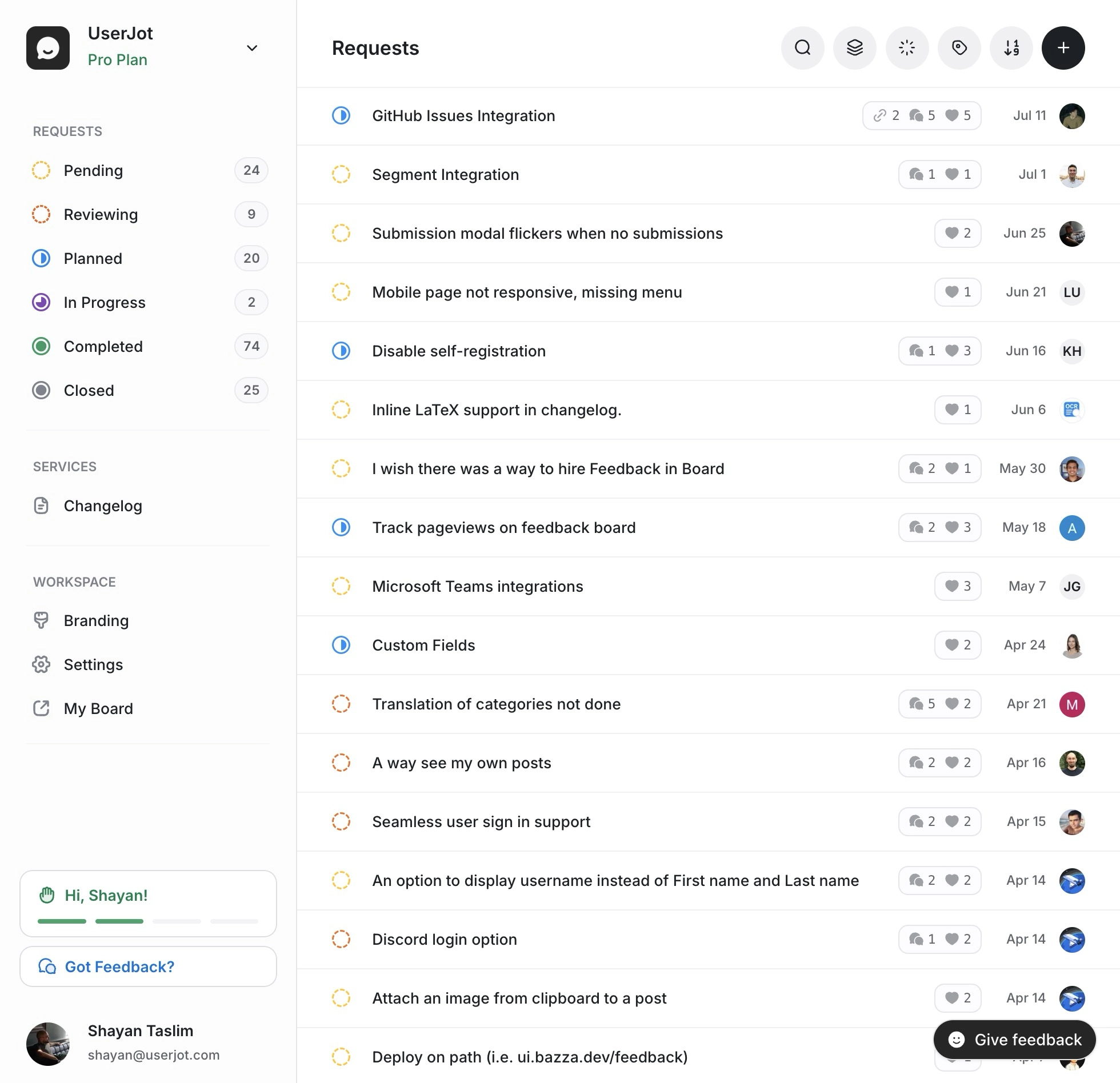OpenAI Codex Pricing in 2026: What I Found After Ditching Claude Code

I cancelled my Claude Code subscription yesterday. After the Opus 4.1 update, the quality just isn’t what it used to be. More refusals, worse at following instructions, and the UI work that used to be great is now mediocre at best.
So I started looking for alternatives. The obvious choices were Cursor, Gemini CLI, or maybe just going back to GitHub Copilot. But then I remembered OpenAI Codex and figured I’d check what they’re charging these days.
Here’s the thing: searching for “OpenAI Codex pricing” is confusing. Half the results talk about an API that was deprecated in 2023. The other half mention something called Codex Web and Codex CLI, but nobody seems to know how much it actually costs or how to get it.
After digging around, I finally figured out what’s going on with OpenAI Codex in 2025. If you’re in the same boat, here’s what I found.
OpenAI Codex Pricing: It’s All Through ChatGPT Now
The old Codex API is dead. OpenAI killed it in March 2023. But they didn’t just abandon Codex. They rebuilt it as part of ChatGPT and launched a completely new system in 2025.
Current pricing:
- ChatGPT Plus: $20/mo (includes Codex Web + Codex CLI)
- ChatGPT Pro: $200/mo (same features, 10x the usage)
- Business: $25 to 30/user/mo (team features)
- Enterprise: Custom pricing
That’s it. No separate Codex subscription. No standalone pricing. You get it through ChatGPT.
What You Actually Get
OpenAI split Codex into three products:
Codex Web: An autonomous coding agent that runs in the cloud. Think of it like having a junior developer who can work independently for 1 to 30 minutes. It’s powered by a specialized version of o3 optimized for coding.
Codex CLI: Open-source command-line tool that runs locally on your machine. Uses GPT-5 by default. Supports multimodal inputs (screenshots, diagrams). This is what I’m most interested in as a Claude Code replacement.
API Access: If you need programmatic access, there’s codex-mini-latest ($1.50 per million input tokens, $6.00 output) and regular GPT-5 ($1.25 input, $10.00 output).
Usage Limits: The Real Story
ChatGPT Plus ($20/mo):
- 30 to 150 messages every 5 hours for Codex CLI
- “Generous limits” for Codex Web (they haven’t specified exact numbers yet)
- $5 free API credits that expire after 30 days
ChatGPT Pro ($200/mo):
- 300 to 1,500 messages every 5 hours
- $50 free API credits
- Same features, just more usage
The ranges are wide because message complexity affects token consumption. Building UserJot, I’ve noticed that refactoring PRs eat way more tokens than simple feature additions.
How It Compares to Claude Code
I’ve been using Claude Code’s $200 plan for months. Here’s how they stack up:
Claude Code Max ($200/mo):
- 200 to 800 prompts every 5 hours
- Access to Opus 4 (or 4.1 now, unfortunately)
- Focused purely on coding
OpenAI Codex via ChatGPT Pro ($200/mo):
- 300 to 1,500 messages every 5 hours
- Access to GPT-5 and specialized coding models
- Includes all ChatGPT features beyond just coding
On paper, OpenAI gives you more for the same price. But the real question is model quality.
My Initial Impressions
I signed up for ChatGPT Plus to test Codex CLI. Setup was straightforward. Just sign in with your ChatGPT account and you’re good to go. The CLI feels similar to Claude Code but with some nice touches:
- Network access is disabled during code execution (more secure)
- Better git integration out of the box
- Multimodal support is genuinely useful for UI work
The model quality seems solid. Not quite Opus 4 level (pre-nerf), but definitely better than Sonnet 4. For $20/month, it’s hard to complain.
Should You Switch?
If you’re happy with Claude Code, probably not. Despite my complaints about Opus 4.1, it’s still a good tool. But if you’re shopping around or hitting Claude’s rate limits, OpenAI Codex is worth considering.
The $20 ChatGPT Plus tier is particularly interesting. You get decent Codex access plus all the regular ChatGPT features. For solo developers or small teams, it might be all you need.
I’m giving it a week before deciding. Building features for UserJot is my litmus test. If I can ship our new changelog templates and feedback board customization without constantly hitting limits or fighting with the model, I might stick with it.

Stop guessing what to build. Let your users vote.
Try UserJot freeThe Hidden API Option
One thing most people miss: you can still use Codex through the API if you prefer. The codex-mini-latest model is specifically optimized for coding tasks and costs less than GPT-5.
API pricing:
- codex-mini-latest: $1.50 per million input, $6.00 output
- GPT-5: $1.25 input, $10.00 output
- GPT-5 Mini: $0.25 input, $2.00 output
For most developers, the subscription is better value. But if you’re building tools or have specific needs, the API is there.
What This Means for AI Coding Tools
OpenAI bundling Codex into ChatGPT subscriptions is smart. Instead of competing directly with Claude Code and Cursor on price, they’re making it part of a bigger package.
You’re not just paying for a coding assistant. You’re getting ChatGPT Plus or Pro with coding as a bonus. For developers who already use ChatGPT for other tasks, it’s basically free.
This might push other tools to bundle more features or cut prices. We’ve already seen Google make Gemini CLI completely free. The race to the bottom in AI pricing continues.
Final Thoughts
OpenAI Codex in 2025 is a solid alternative to Claude Code, especially at the $20 price point. The integration with ChatGPT makes it convenient, and the model quality is good enough for real work.
Is it better than Claude Code? Depends on what you need. For pure coding, Claude might still have an edge. But for overall value and flexibility, OpenAI’s offering is compelling.
I’ll update this post after a week of heavy usage. For now, if you’re curious about Codex pricing or looking for Claude Code alternatives, hopefully this clears things up.
FAQ
Is OpenAI Codex still available in 2025?
Yes, but not as a standalone API. OpenAI deprecated the original Codex API in 2023 and relaunched it in 2025 as part of ChatGPT subscriptions. You now access it through Codex Web, Codex CLI, or specialized API models.
How much does OpenAI Codex cost?
OpenAI Codex is included with ChatGPT subscriptions: $20/month for Plus (30 to 150 messages/5 hours) or $200/month for Pro (300 to 1,500 messages/5 hours). There’s no separate Codex-only pricing.
What happened to the OpenAI Codex API?
The original Codex API was deprecated in March 2023. OpenAI now offers codex-mini-latest ($1.50/$6.00 per million tokens) and GPT-5 ($1.25/$10.00 per million tokens) for API access.
Can I use OpenAI Codex for free?
No free tier exists for Codex. The cheapest access is through ChatGPT Plus at $20/month, which includes both Codex Web and Codex CLI with usage limits.
How does OpenAI Codex compare to Claude Code?
Both offer $200/month top tiers. OpenAI provides 300 to 1,500 messages/5 hours vs Claude’s 200 to 800 prompts. OpenAI includes all ChatGPT features while Claude focuses purely on coding.
What’s the difference between Codex Web and Codex CLI?
Codex Web is a cloud-based autonomous agent that can work independently for 1 to 30 minutes. Codex CLI is an open-source tool that runs locally on your machine with GPT-5.
Can I still access Codex through an API?
Yes. Use codex-mini-latest (optimized for coding) or GPT-5 models through the OpenAI API. Most developers find subscriptions more economical than pay-per-token pricing.
What are the usage limits for OpenAI Codex?
Plus users get 30 to 150 messages every 5 hours. Pro users get 300 to 1,500 messages. Limits vary based on message complexity and token consumption.
Is OpenAI Codex better than GitHub Copilot?
They serve different purposes. Copilot is for in-editor completions while Codex offers full autonomous coding agents and CLI tools. Codex is more comparable to Claude Code or Cursor.
Do I need ChatGPT Pro for serious development work?
Plus ($20/month) works fine for many developers. Only upgrade to Pro if you’re consistently hitting the usage limits or need the higher throughput for intensive coding sessions.